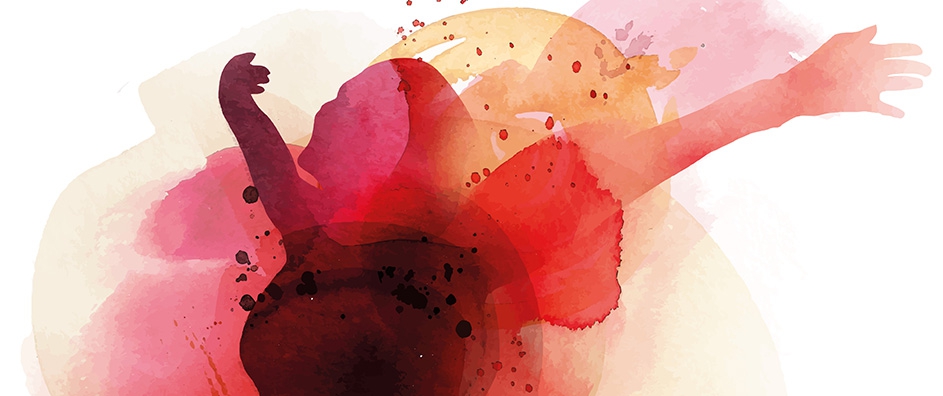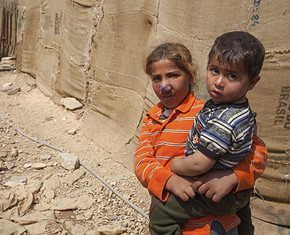The views expressed in our content reflect individual perspectives and do not represent the authoritative views of the Baha'i Faith.
Baha’u’llah affirms that God created humanity out of love.
Our purpose is to know and to love God in return. The aim of this life is to acquire faith, love of God, and other spiritual qualities in preparation for the eternal life to come. For in reality we are spiritual beings, and this material existence is only a prelude to our future life.
Baha’u’llah stated that it is impossible for us to completely understand the nature of the life beyond. We cannot possibly imagine something different from anything we have ever experienced. Baha’u’llah makes this point in striking fashion. “The world beyond,” he writes, “is as different from this world as this world is different from that of the child while still in the womb of its mother.” – Gleanings from the Writings of Baha’u’llah, p. 157.
This analogy is worth pondering. The purpose of life in the womb is to prepare the unborn child for life in the outer world. During this time the child develops senses and capacities that are necessary for its continued existence and prosperity. All the while the child is oblivious to this fact. Even if there were some way it might imagine a “life to come,” how could the child ever truly comprehend the vastness and wonders of the world beyond its mother’s womb?
The same is true of the world beyond this one. If we face death with fear and trepidation, it is only because we, like the unborn child, are ignorant of what awaits us. In The Hidden Words, Baha’u’llah says, “I have made death a messenger of joy to thee. Wherefore dost thou grieve?” – p. 11.
Baha’u’llah taught that every human being possesses a rational soul, the true seat of our personality and consciousness. The soul survives physical death and exists forevermore in the world of the spirit.
This concept is very difficult to grasp, especially since the soul cannot be perceived with our senses in the same way that we can observe and understand physical phenomena. It is extremely hard for some people to imagine how it could be possible to continue to exist after death. These difficulties cause many to doubt the existence of the soul and of the life hereafter. Some people addressed Baha’u’llah with questions about these matters. Here is how Baha’u’llah answered the issue on one occasion:
Thou hast asked Me whether man, as apart from the Prophets of God and His chosen ones, will retain, after his physical death, the self-same individuality, personality, consciousness, and understanding that characterize his life in this world. If this should be the case, how is it, thou hast observed, that whereas such slight injuries to his mental faculties as fainting and severe illness deprive him of his understanding and consciousness, his death, which must involve the decomposition of his body and the dissolution of its elements, is powerless to destroy that understanding and extinguish that consciousness? How can any one imagine that man’s consciousness and personality will be maintained, when the very instruments necessary to their existence and function will have completely disintegrated?
Know thou that the soul of man is exalted above, and is independent of all infirmities of body or mind. That a sick person showeth signs of weakness is due to the hindrances that interpose themselves between his soul and his body, for the soul itself remaineth unaffected by any bodily ailments. Consider the light of the lamp. Though an external object may interfere with its radiance, the light itself continueth to shine with undiminished power. In like manner, every malady afflicting the body of man is an impediment that preventeth the soul from manifesting its inherent might and power. When it leaveth the body, however, it will evince such ascendancy, and reveal such influence as no force on earth can equal. Every pure, every refined and sanctified soul will be endowed with tremendous power, and shall rejoice with exceeding gladness. – Gleanings from the Writings of Baha’u’llah, pp. 153-154.
And in other passages Baha’u’llah describes the wonders of the life to come. For example:
And now concerning thy question regarding the soul of man and its survival after death. Know thou of a truth that the soul, after its separation from the body, will continue to progress until it attaineth the presence of God, in a state and condition which neither the revolution of ages and centuries, nor the changes and chances of this world, can alter. It will endure as long as the Kingdom of God, His sovereignty, His dominion and power will endure. It will manifest the signs of God and His attributes, and will reveal His loving-kindness and bounty. The movement of My Pen is stilled when it attempteth to befittingly describe the loftiness and glory of so exalted a station. The honor with which the Hand of Mercy will invest the soul is such as no tongue can adequately reveal, nor any other earthly agency describe. Blessed is the soul which, at the hour of its separation from the body, is sanctified from the vain imaginings of the peoples of the world. Such a soul liveth and moveth in accordance with the Will of its Creator, and entereth the all-highest Paradise. The Maids of heaven, inmates of the loftiest mansions, will circle around it, and the Prophets of God and His chosen Ones will seek its companionship. With them that soul will freely converse, and will recount unto them that which it hath been made to endure in the path of God, the Lord of all worlds. If any man be told that which hath been ordained for such a soul in the worlds of God, the Lord of the throne on high and of earth below, his whole being will instantly blaze out in his great longing to attain that most exalted, that sanctified and resplendent station. – Ibid., pp. 155-156.
Many other passages like these describe the heavenly joys to come. But they also make clear that happiness in the spiritual world is dependent upon certain conditions. It comes when we live up to what God expects of us in this world. We must, as Baha’u’llah puts it, walk “in the ways of God.”
















Comments
Sign in or create an account
Continue with Googleor